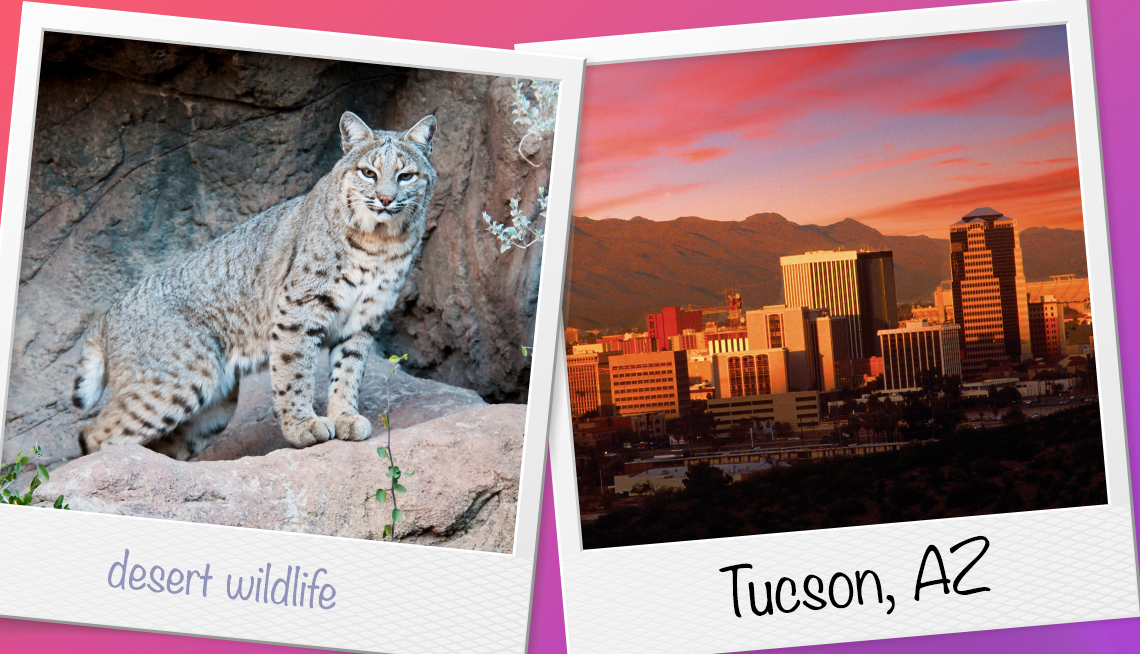
- Select a language for the TTS:
- UK English Female
- UK English Male
- US English Female
- US English Male
- Australian Female
- Australian Male
- Language selected: (auto detect) - EN
Play all audios:
ANELLO Southwestern ingredients take a detour to Italy at this intimate and forward-thinking pizzeria, where pies are made with naturally leavened sourdough crusts and cooked in a
wood-fired oven shipped over from Naples. In place of traditional chili flakes, dishes get a hit of spice from chiltepín, which grow throughout the Southwest, and seasonal toppings might
include pickled Anaheim peppers, local kumquats, dandelion greens or roasted peaches. Located in a brick building from the late 1800s, the minimalist space is inspired by Japanese design,
with a sleek Douglas fir ceiling and a 12-person communal table. BARRIO CHARRO Barrio Bread owner Don Guerra — who uses heritage grains like white Sonoran wheat in his loaves — was named
America’s best baker at last year’s James Beard Foundation Awards. In 2021, he teamed with chef Carlotta Flores, from the century-old El Charro Café, for this wildly inventive fast-casual
spot. In addition to all-day brunch with $5 mimosas, expect a menu of soups, burritos and tortas, like the Pueblo Quesabirria, made with birria (stewed beef), queso Oaxaca, beans, pico
salsa and a consommé dip on the side; if you haven’t tried it before, it’s something like a Mexican French dip with tons more flavor. AARP TOP PICKS Nicknamed “The White Dove of the
Desert,” the San Xavier del Bac Mission is on the San Xavier Reservation. Getty Images SAN XAVIER DEL BAC MISSION This Catholic mission was built between 1783 and 1797, and is the state’s
oldest intact European structure. Over the years, it passed hands from New Spain to Mexico to the United States. Nicknamed “The White Dove of the Desert” for its gleaming whitewashed walls,
the Baroque church is located in the San Xavier Reservation, part of the Tohono O’odham nation, and among its original murals and statues is a wooden carving of Saint Kateri Tekakwitha, the
first Native American saint in the Roman Catholic Church. Ways to save: The church is always free to visit. Note: Face masks are required indoors only, and social distancing should be
observed. MISSION GARDEN To see why Tucson was named a UNESCO City of Gastronomy, visit this living agricultural museum, which feels like a little slice of Eden at the foot of Sentinel
Peak — the city’s birthplace, where its first inhabitants grew crops 4,000 years ago. Now, it’s a fascinating community garden brimming with heritage fruit trees, heirloom crops and edible
native plants like prickly pears, mesquite and palo verde beans. Ways to save: The entry fee is a suggested $5 donation, and the garden operates a slew of free programs including monthly
bird walks, on which you can meet Kevin the roadrunner. Saguaro cactuses are the main attraction at Sagauro National Park. Alamy SAGUARO NATIONAL PARK Sky-high saguaro cacti are one of
the enduring symbols of the Old West, and they’re the main attraction at this 143-square-mile national park, which is split into two sections — Saguaro West and Saguaro East — flanking the
city. There’s something for every outdoorsy type, from low-key scenic drives to hiking on the park’s more than 165 miles of trails. Be sure to save time for the Signal Hill Petroglyph Area
in Saguaro West, which is reached via a 500-foot walk with a 40-foot elevation change: Here, you’ll be able to see more than 200 examples of Native American rock art, created between 550
and 1,550 years ago. Ways to save: The entry fee is $25 per vehicle and good for seven days in both sections of the park; purchase an Annual Senior Pass (for 62+) and pay $20. More than
400 historic aircraft are housed at the Pima Air & Space Museum. Alamy PIMA AIR & SPACE MUSEUM This collection of more than 400 historic aircraft sprawls across six hangars and
250,000 feet of indoor exhibition space. Among the flying machines on display are a Boeing B-29 Superfortress bomber, a Sikorsky UH-60MU Black Hawk military helicopter and an Aero Spacelines
377-SG “Super Guppy,” a bulbous-looking cargo plane that was used to carry the Apollo program’s Saturn rockets. Ways to save: Admission is $19.50; $16.75 for ages 65 and older. MONSOON
CHOCOLATE It’s hard to think of a sweeter souvenir to take home than this indie chocolatier’s bon bons, which come in desert-inspired flavors such as prickly pear caramel and Whiskey Del
Bac Dorado. For a true taste of the region, try the blue corn atole white chocolate, which is based on the traditional Mesoamerican corn- and masa-based beverage. Ways to save: The store’s
cookies are a relative steal, starting at $3.75 each; try the Monsoon cookie ($4), made with toasted rye, brown butter, Tanzanian dark chocolate and flake salt. Get there early — the
cookies sell out fast.




:max_bytes(150000):strip_icc():focal(299x0:301x2)/teresa-halbach-n-600-a5341a4170034664888be15df4d42c2e.jpg)


